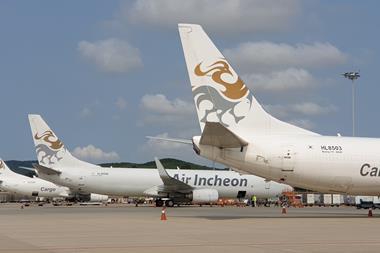ICAO has issued “additional clarifications” on new lithium-ion battery shipment restrictions as cargo on passenger aircraft, which the UN aviation agency announced last week.
The 36-state ICAO Governing Council adopted a new aviation safety measure which prohibits, on an interim basis from April 2016, all shipments of Lithium-ion batteries as cargo on passenger aircraft.
In its latest update, ICAO said of passenger baggage: Lithium ion batteries carried by passengers in their personal electronic devices, whether in their carry-on or checked baggage, are not affected by this new restriction.
Passengers must not pack spare lithium ion batteries in checked baggage. Spares must be packed in carry-on baggage or carried on the person.
For baggage shipped by air as cargo, ICAO added: Lithium ion batteries may no longer be packed in baggage shipped independently as cargo.
Lithium ion batteries in mishandled baggage, or excess passenger baggage shipped as cargo, are permitted so long as they also satisfy the requirements of points 1 and 2 above.
ICAO added that passengers “should verify local government and airline regulations which are set out in order to ensure full compliance with all applicable requirements specific to their voyage.
“The new prohibition is not voluntary and must be adhered to by all 191 State parties to the Convention on International Civil Aviation (Chicago Convention).”
While US safety regulators and pilot associations have welcomed the ICAO move, some shippers have argued that the new rule goes against previous recommendations and “does not address the wider problem of undeclared battery shipments or low-quality counterfeits”.









